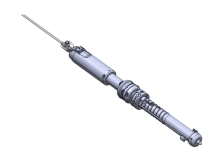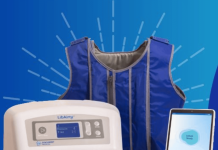US-based electrocardiogram (ECG) company AccurKardia has received breakthrough designation from the US Food and Drug Administration (FDA) for its Aortic Valve Stenosis (AVS) ECG-based artificial intelligence (AI) screening software.
AccurKardia says that its AVS screening software is designed to trawl through millions of already existing EKG records by taking advantage of the technologies widespread use across multiple healthcare agencies to identify potential cases of AVS with the aim of identifying the most at risk patients.
Related: FDA approves Happy Health’s medical-grade wearable smart ring
Typically, AVS is likely to develop within older patients and can be life-threatening if left undetected for long enough, it is usually identified by way of bedside examination, but AccurKardia claims that as a result of this, some patients are missed as a result of poor symptom recognition and the time constraints of traditional primary care.
AccurKardia claim that the AI-driven software will be able to run through thousands of ECG scans taken and retained by hospitals, with alerts and information forwarded to healthcare staff to enable intervention and treatment faster.
Juan C. Jimenez, co-Founder and CEO of AccurKardia, said: “Our mission is to improve patient outcomes and save lives by transforming ECG into a broad biomarker, with initial focus in cardiology.
“Our AVS detection technology is the first application of its kind in the detection of structural heart disease, where the condition is chronically underdiagnosed, has a high mortality rate, and can otherwise be treated successfully.”
In order to qualify for breakthrough device designation a manufacturer represents a breakthrough in technology, and offers significant advantages over existing alternatives. The designation means that the company will see future applications for its AVS screening software accelerated through the FDA’s regulatory system.
Jimenez added: “Not only will patients benefit from improved outcomes, but payers will benefit from reduced costs, particularly from fewer heart failure hospitalizations. Hospital systems that adopt it could also benefit from improved utilization of their Heart Teams.”




